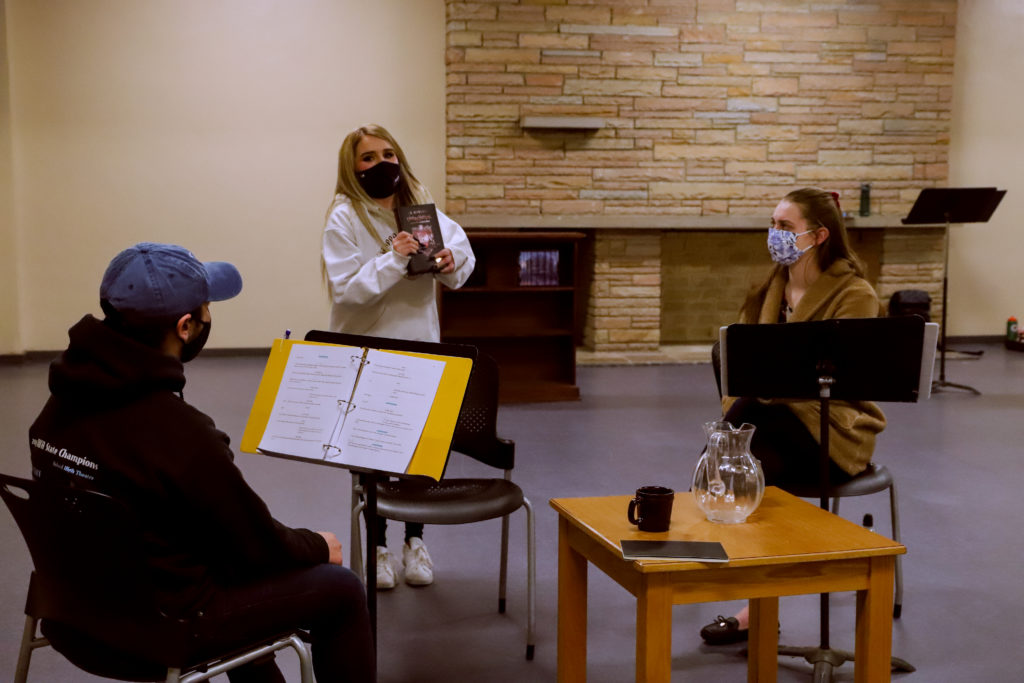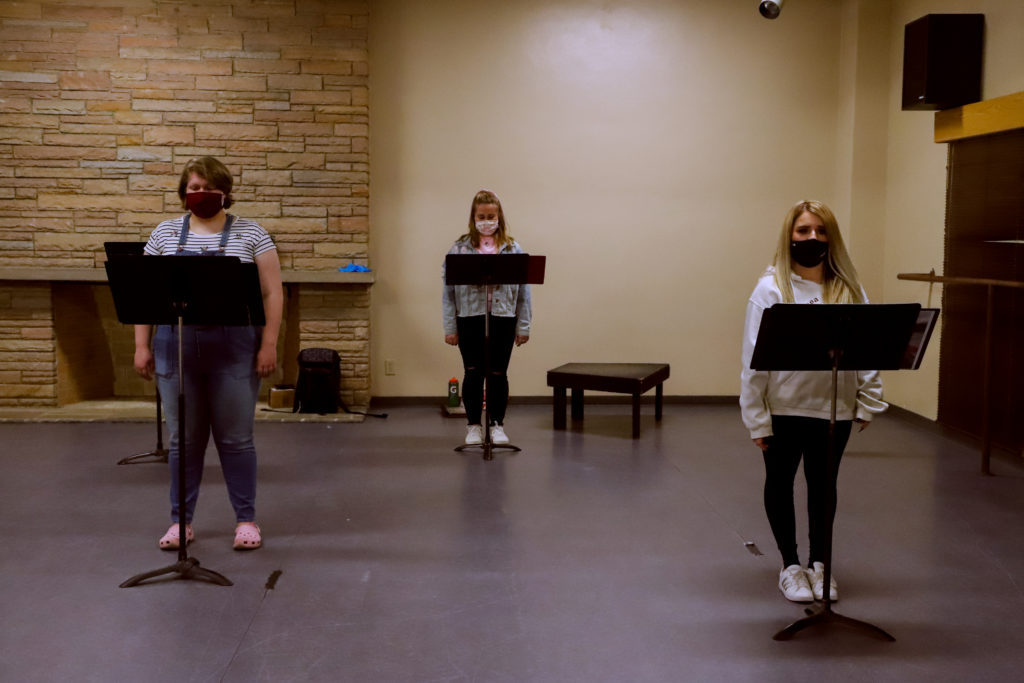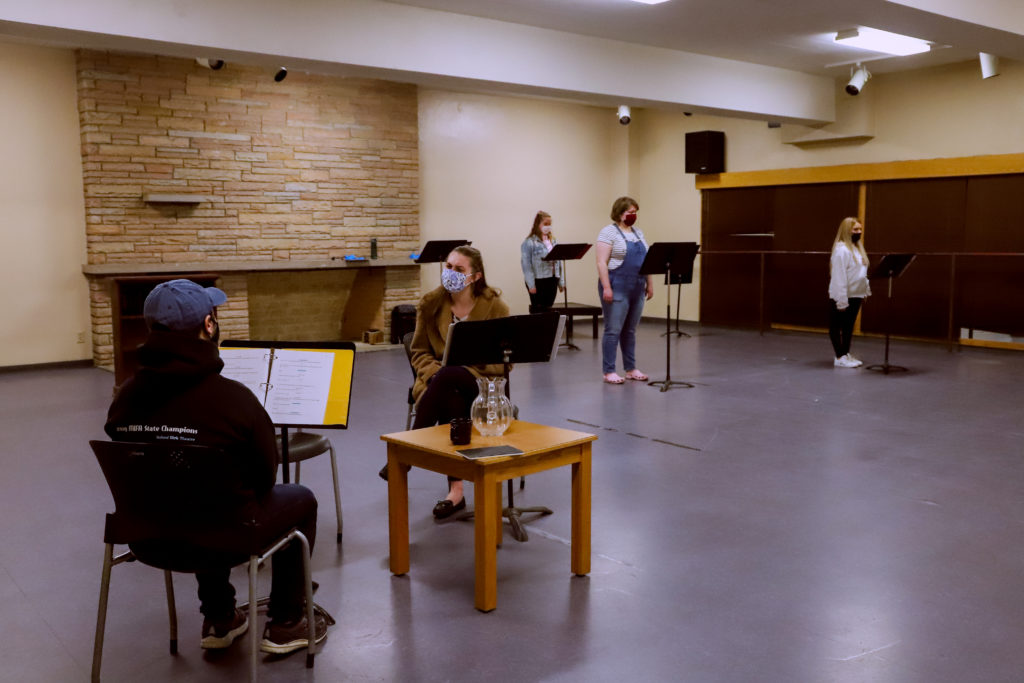Zandra Paxton is a senior at Hope College who has been an active member of the theatre program here at Hope since freshman year. She participated in theatre all throughout high school but did not come to Hope initially as a theatre major. After taking a couple of theatre classes her freshman year, she “fell in love” and subsequently pursued a double major in business and theatre.
Zandra has been writing since middle school and has had the idea for this play for a while now. Originally she was going to turn this story into a memoir, but through the help of her playwriting class last semester, she had the opportunity to bring this story to life: “It’s fun, exciting, but really challenging. What was most beneficial was that I was in a playwriting class so I got to bring my work to the table every week and have my peers critique it, talk about it, and perfect it.”

Zandra’s play, The Consequences of a Miracle, comes to life through an elevated staged reading live-streamed on April 29, 30, and May 1, all at 7:30 pm. Tickets are free. Follow the links to each performance listed below.
Zandra describes the initial impetus for the play: “What happens when the first question everyone asks you is about the most traumatic experience of your life?” According to Zandra The Consequences of a Miracle “follows a woman who is finally getting a chance to tell her side of a story that has haunted her for her entire life. Fantasy melds with reality as the events that took place come to life before our eyes. Everything is not as it seems, and so, the story starts.”

Zandra was inspired to write this play as she saw a lack of roles for people with disabilities in theatre. She explained that “If you want the role, sometimes you have to write it for yourself.” Part of a Theatre Department 490 student project is producing the piece on your own, with the theatre faculty and staff serving as mentors and guides. Zandra reflected upon what it has been like to be the playwright, director, and actor of this play: “It is difficult at times and exciting at times. Sometimes I feel like my brain is being pulled in all different directions, but I really enjoy discovering all these different sides of me. It’s a good time.” Luckily, she has had the support of many people without whom she wouldn’t have been able to put the play together: “I think the beauty of theatre is that it is a collaborative art form. While I have juggled a lot of hats, none of this would be possible if it weren’t for everyone I was working with. This is just why theatre is amazing. When I don’t have an answer I can turn to other people and ask them, What should we do? You are not completely alone in this process.” She has loved every part of putting together this production: “It is the best time ever and it always will be.”

Zandra hopes that the message viewers take away from this play is that “there’s this cultural trap that we tend to fall into when dealing with difficult situations known as ‘idiot compassion.’ Basically, we act in a way to ease someone’s suffering, which ultimately isn’t helpful for that person because we’re too uncomfortable to deal with their pain. By doing this, we teach people that we don’t trust them to take care of themselves. We teach them that there is something wrong with their pain, which creates a vicious cycle of repression and guilt surrounding these difficult times.” She continues, “Sitting and being comfortable with pain, anger, sadness, and all those ‘ugly’ feelings is not easy, but it is necessary for any healing process. Specifically, with children who don’t have the vocabulary yet to understand what they are experiencing, it is necessary to teach them about what they are feeling and to let them know that it is ok. It isn’t going to make things easier for anyone going through a hard time, but it will help them fully process and heal from the situation. We can’t ‘fix’ everything despite how much we want to, but we can hold space for the people we care about and let them know that they’re not alone on their journey to recovery.”
Join us in celebrating Zandra’s accomplishments as the playwright, director, and central actor in The Consequences of a Miracle.
by Rachel Scott ’24

